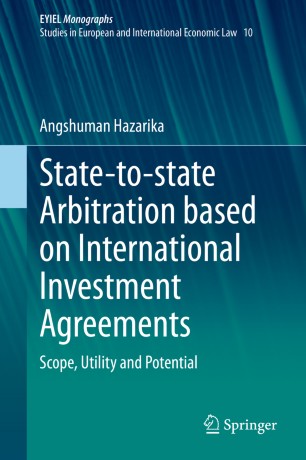

Most ebook files are in PDF format, so you can easily read them using various software such as Foxit Reader or directly on the Google Chrome browser.
Some ebook files are released by publishers in other formats such as .awz, .mobi, .epub, .fb2, etc. You may need to install specific software to read these formats on mobile/PC, such as Calibre.
Please read the tutorial at this link: https://ebookbell.com/faq
We offer FREE conversion to the popular formats you request; however, this may take some time. Therefore, right after payment, please email us, and we will try to provide the service as quickly as possible.
For some exceptional file formats or broken links (if any), please refrain from opening any disputes. Instead, email us first, and we will try to assist within a maximum of 6 hours.
EbookBell Team

4.0
56 reviewsThis book discusses the use of the compromissory clause in international investment agreements (IIAs) for interstate dispute resolution. It puts forward the possibility of using state-to-state arbitration based on the compromissory clause in IIAs as an alternative means of resolving investment disputes in light of the global debate on the shortcomings of investor-state arbitration.
The book’s main conclusion is that state-to-state arbitration may be used as an alternative to currently popular investor-state arbitration by resolving procedural hurdles which impede its acceptance. It becomes more important with the removal of investor-state arbitration as an option in certain recent IIAs, which then elevates state-to-state arbitration as the sole option for binding third party dispute resolution in the treaty. Even then, it is unlikely to replace investor-state arbitration completely due to its inherent shortcomings, such as the risk of re-politicising disputes and a lack of direct control over the process for the affected investors. Nevertheless, the availability of an alternative forum will benefit all parties involved, as they will no longer be wholly dependent on investor-state arbitration, which can be affected by events such as denunciation from the ICSID Convention or the refusal of a host state to enforce an arbitration award.